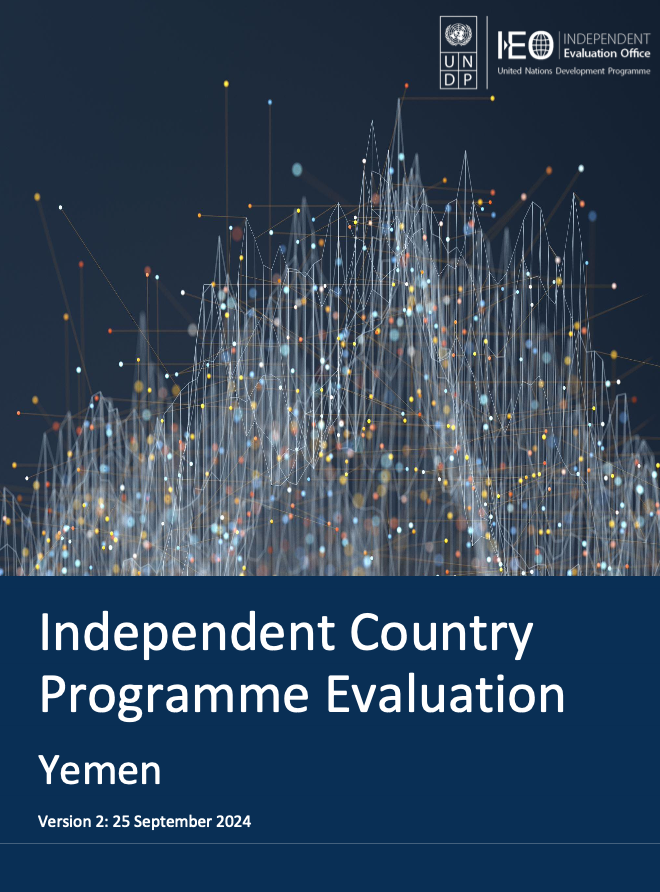Yemen is a low-income country that has long faced development challenges, even before the escalation of the conflict in 2014. The country has witnessed a cycle of political upheaval, institutional collapse, and violence, compounded by natural disasters and climate change. The ongoing conflict has reversed decades of development gains, leaving Yemen ranking among the lowest globally in terms of human development and gender equality. An estimated 18.2 million people require humanitarian assistance in 2024, with large parts of the population struggling to access basic services such as healthcare, clean water, and education. The country also remains one of the most vulnerable to climate shocks, further straining its fragile socio-economic conditions.
In response to this multifaceted crisis, the Independent Country Programme Evaluation (ICPE), commissioned by the Independent Evaluation Office (IEO) of the United Nations Development Programme (UNDP), assessed the performance of UNDP’s programming in Yemen from 2019 to 2023. Triangle contributed to the evaluation as a key international consultancy partner, supporting the assessment with a mixed-methods approach. This included in-person and online interviews, focus group discussions, and over 25 site visits across seven governorates. The report highlighted UNDP’s ability to deliver a relevant programme in a highly volatile context, emphasizing initiatives such as cash-for-work programs, solar energy projects, and governance reforms. While many targets were met, the evaluation noted challenges, including limited local capacities and access restrictions. Recommendations included scaling up sustainable development efforts, enhancing local governance frameworks, and improving partnerships to address Yemen’s complex humanitarian-development-peace nexus.
